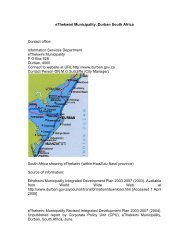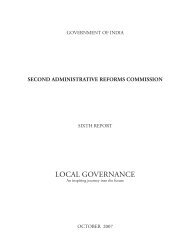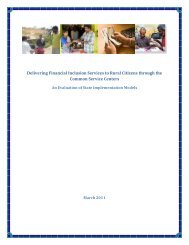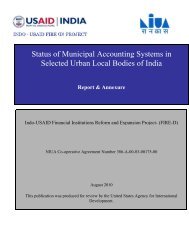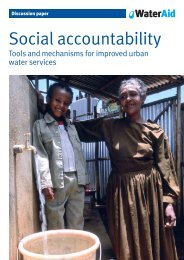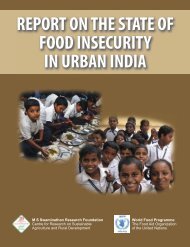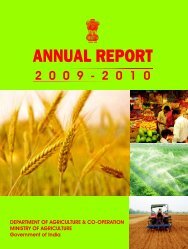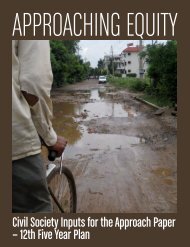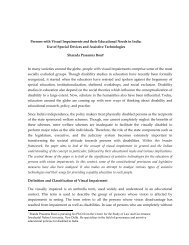Changing Framework of Local Governance and - Create
Changing Framework of Local Governance and - Create
Changing Framework of Local Governance and - Create
You also want an ePaper? Increase the reach of your titles
YUMPU automatically turns print PDFs into web optimized ePapers that Google loves.
<strong>Changing</strong> <strong>Framework</strong> <strong>of</strong> <strong>Local</strong> <strong>Governance</strong> <strong>and</strong> Community Participation in Elementary Education9. ConclusionEducation <strong>of</strong> all children should be considered a shared social goal for all members <strong>of</strong> thecommunity <strong>and</strong> it is important to set up structures <strong>and</strong> interventions to get stakeholdersinvolved. These might include initiatives to improve physical infrastructure, developefficiency in educational services <strong>and</strong> improve educational quality, <strong>and</strong> should includecommunity members, as well as educational pr<strong>of</strong>essionals. Indeed, both public response <strong>and</strong>public action are essential ingredients for the sustainable <strong>and</strong> continuous development <strong>of</strong>education.... the virtuous circle <strong>of</strong> state intervention <strong>and</strong> public response is likely to beconsolidated as education levels among parents continue to increase rapidly in the nearfuture (PROBE, 1999:127).India has witnessed a wide range <strong>of</strong> reforms <strong>of</strong> educational governance over the last couple <strong>of</strong>decades. Most states have attempted to establish multilevel governance systems moving closerto the schools <strong>and</strong> redefining the roles <strong>and</strong> responsibilities for elementary education. Thispaper has described the process <strong>of</strong> these changes which differ in various states. In some statesthe local authority including the Panchayati Raj Institute is managing school education, whileother states are considering involving parents <strong>and</strong> the community in the management <strong>of</strong>schools through school level committees. Various policy measures have made these moves toa more decentralised system more possible.However, the situation is politically complicated <strong>and</strong> reform uneven across the country. Thiscomplication, as well as variation, is likely to increase in the years to come <strong>and</strong> so it isessential that planners <strong>and</strong> policy makers have a good underst<strong>and</strong>ing <strong>of</strong> the processes <strong>and</strong>outcomes <strong>of</strong> effective decentralisation. Educational reforms at the local level require realisticunderst<strong>and</strong>ings <strong>of</strong> community characteristics <strong>and</strong> greater flexibility in order to address localneeds. Effective decentralisation is one way to help enable this.This paper has shown how through the effective involvement <strong>of</strong> parents <strong>and</strong> communityorganisations, different states are attempting to bring schools <strong>and</strong> the community closer in orderto meet educational needs in a contextualised manner. This has no doubt introduced a sense <strong>of</strong>ownership <strong>and</strong> democratic participation among parents <strong>and</strong> other stakeholders in schoolmanagement. An ongoing study undertaken by NUEPA has examined the involvement <strong>of</strong>VECs <strong>and</strong> found that regular interaction with communities can improve democraticparticipation.However, the major emphasis in these states has been on improving the efficiency <strong>of</strong> the systemrather than empowering the local community to decide <strong>and</strong> take action on their children’seducation. Moreover, these school-related bodies have been established essentially through topdownadministrative processes without serious efforts towards grassroots mobilization <strong>and</strong> theorganization <strong>of</strong> local citizenry in participative processes. Devolution <strong>of</strong> power <strong>and</strong> functions atthe local level in most cases are far from complete resulting in weak community participation. Itis generally the case that states that have adopted more community <strong>and</strong> local representation alsohave better access <strong>and</strong> retention rates for children; those states with weaker access <strong>and</strong> retentionrates also have less community involvement.38




